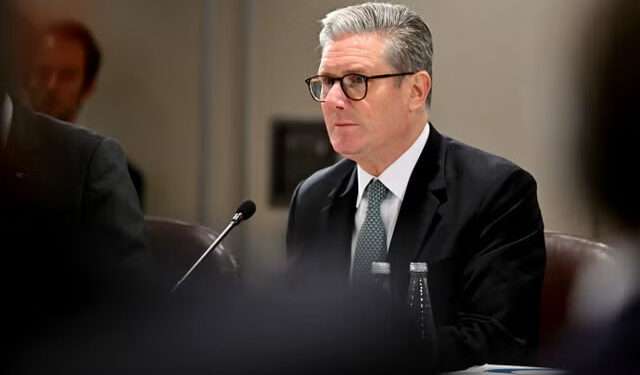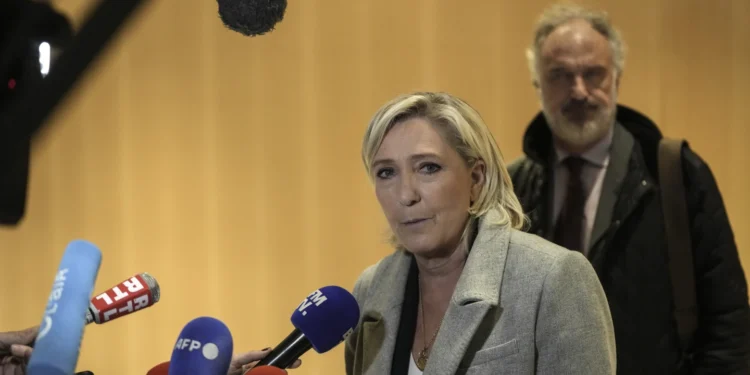Former Attorney General and Minister for Justice Nii Ayikoi Otoo has weighed in on the petition to remove Ghana’s Chief Justice, Gertrude Torkornoo, arguing that fairness demands that the Chief Justice be allowed to respond before any determination is made.
At the heart of the debate was the legal concept of prima facie, which refers to the initial determination of whether sufficient evidence exists to warrant further proceedings.
Ayikoi Otoo strongly opposed the idea of making a prima facie determination without first hearing the Chief Justice’s response.
He argued that without input from the accused, any conclusion reached would lack fairness and could set a dangerous precedent.
“If you have not heard anything, if you have nothing from the other side, what are you determining? How could you come to a conclusion that you think there is a prima facie matter to go to trial?”
Nii Ayikoi Otoo, Former Attorney General and Minister for Justice
Ayikoi Otoo emphasized that the process should not proceed without hearing from the person accused.
“It’s only after you have finished with the preliminary issues that you decide whether or not there’s a prima facie case. The lower court will have to go through that process to determine whether there is a prima facie case or not.”
Nii Ayikoi Otoo, Former Attorney General and Minister for Justice
The Right to Respond
He contended that if the Chief Justice’s conduct was under scrutiny, she should be granted the chance to respond to the allegations before any decision was made about whether the case was frivolous or substantial.
Drawing parallels to the magistrate court’s role in committal proceedings, he pointed out that even in cases where a scintilla of evidence exists, there must be supporting documents and statements before a decision is made.
“In that case, there is something before the magistrate, isn’t there? There must be the statements and whatever it is of everybody involved in determining. The prosecution witnesses, whatever. You’ll have a whole bill of indictment which is telling you where you are, and is the accused’s statement not part of the bill of indictment?”
Nii Ayikoi Otoo, Former Attorney General and Minister for Justice
Safeguarding Judicial Integrity
Beyond procedural fairness, Ayikoi Otoo warned that allowing petitions to move forward without giving the accused a chance to respond could open the floodgates to politically motivated petitions against the Chief Justice.
He cited constitutional provisions that allow the President to suspend the Chief Justice upon the advice of the Council of State once a petition is referred to a committee, cautioning against misuse of this power.
“Otherwise, everybody can file a petition against the Chief Justice,” he said.

Addressing the broader legal principle of prima facie evidence, referencing its use in intellectual property law, he acknowledged that registration of ownership is often accepted as prima facie evidence.
However, he stressed that in matters concerning removal of a judicial figure, the Supreme Court’s guidance should be followed.
“So long as these matters have gone before the Supreme Court and have received interpretation, I do not think that we should go on the general, but rather zoom in on what we know”
Nii Ayikoi Otoo, Former Attorney General and Minister for Justice
Ayikoi Otoo invoked the precedent set in the Agyei Twum case, where the Supreme Court ruled that it was unfair to determine a prima facie case without granting the accused a hearing.
While some legal experts dismissed this as obiter dicta, statements made in a judgment that are not legally binding, he insisted that the Supreme Court’s reasoning should not be ignored.
When pressed on the distinction between ratio decidendi (the binding legal principle in a case) and obiter dicta, he acknowledged that ratio decidendi holds greater weight.
However, he maintained that practical fairness should prevail. “Whether it is obiter or ratio, they made good points,” he said of the ruling on the Agyei Twum case.
“When the Supreme Court, the highest court of the land, has given a direction that ‘let us look at it this way because it’s only fair,’ I don’t think we should ignore it completely.”
Nii Ayikoi Otoo, Former Attorney General and Minister for Justice
He argued that the Supreme Court rulings should be taken as authoritative guidance on fair legal processes over technicalities and should be binding on the petition for removal against the Chief Justice.
The debate over the Chief Justice’s petition underscores deeper concerns about legal processes, judicial independence, and procedural fairness.
The legal fraternity remains divided on whether a prima facie determination should be made without hearing from the accused, Chief Justice Gertrude Torkornoo.
Minds like Ayikoi Otoo are cautioning against what they see as a dangerous precedent. The unfolding legal battle over the petition is likely to shape future judicial accountability processes in Ghana.
READ MORE: Davido Makes History on Rolling Stone Africa Cover





















